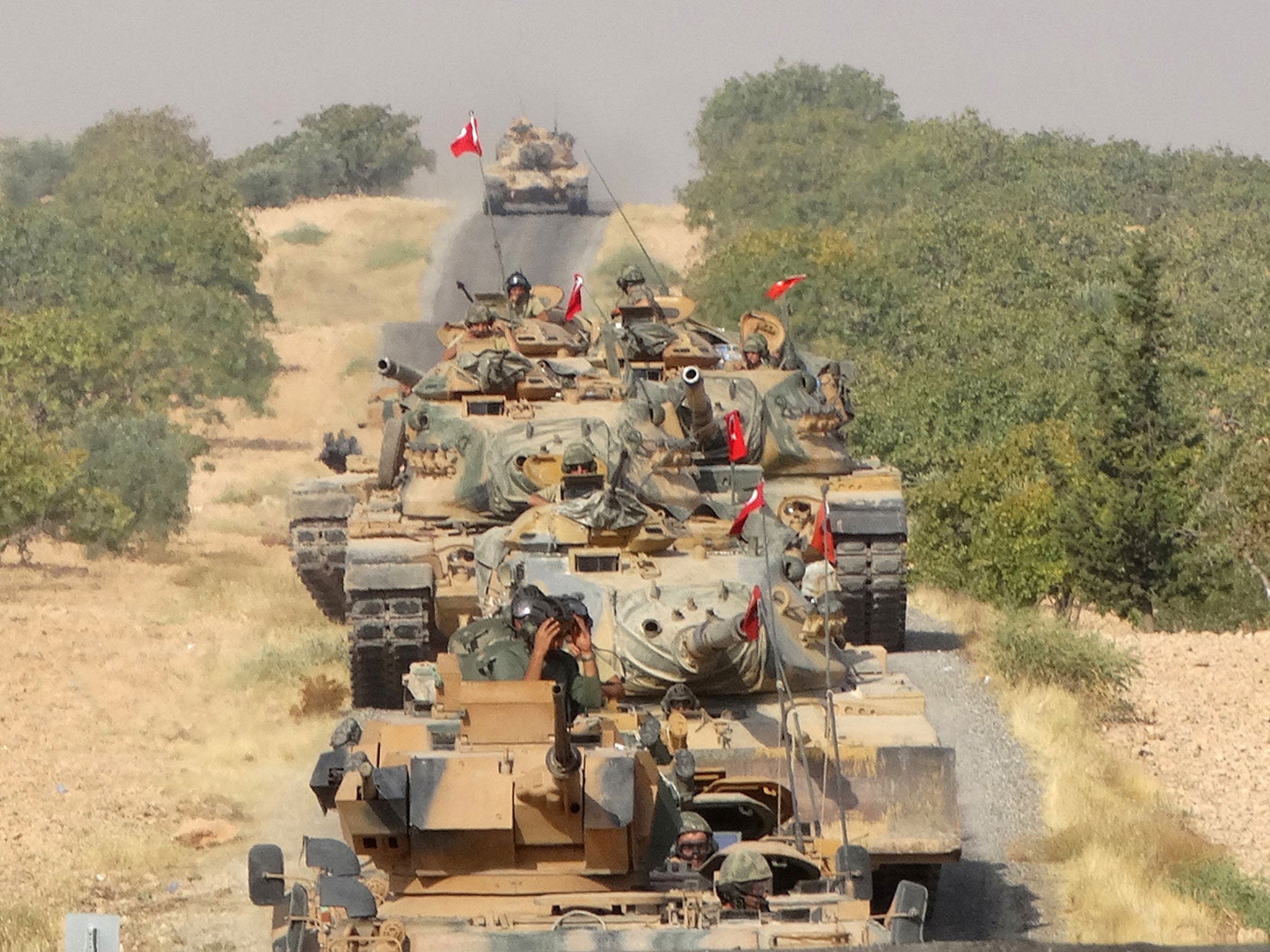Turkey ends 'Euphrates Shield' military operation in Syria, PM says
'Any operation following this one will have a different name'

Turkey has ended the "Euphrates Shield" military operation it launched in Syria, Prime Minister Binali Yildirim has said.
However, Mr Yildirim suggested there might be more cross-border campaigns to come.
Last August, Turkey sent troops, tanks and warplanes to support Free Syrian Army (FSA) rebels, push Isis fighters away from its border and stop the advance of Kurdish militia fighters.
"Operation Euphrates Shield has been successful and is finished," Mr Yildirim said in an interview with broadcaster NTV. "Any operation following this one will have a different name."
Under Euphrates Shield, Turkey took the border town of Jarablus on the Euphrates river, cleared Isis fighters from a roughly 100km (60 mile) stretch of the border, then moved south to al-Bab, an Isis stronghold where the Prime Minister said "everything is under control".
Turkish troops are still stationed in the secured regions and along the border.
The number of Turkish troops involved in Euphrates Shield has not been disclosed.
One aim was to stop the Kurdish YPG militia from crossing the Euphrates westwards and linking up three mainly Kurdish cantons it holds in northern Syria.
Turkey fears the Syrian Kurds carving out a self-governing territory analogous to Iraq's autonomous Kurdish region, a move that might embolden Turkey's own large Kurdish minority to try to forge a similar territory inside its borders.
It views the YPG as the Syrian extension of the Kurdish PKK militant group, which has fought an insurgency in Turkey's southeast since 1984 and is considered a terrorist group by both the United States and the European Union.
With the second largest army in NATO, Turkey is seeking a role for its military in a planned offensive on Raqqa, one of the so-called Islamic State's two de facto capitals along with Mosul in Iraq — but the US is veering towards enlisting the YPG.
Turkish President Recep Tayyip Erdogan has said Turkey is saddened by the US and Russian readiness to work with the YPG in Syria.
Join our commenting forum
Join thought-provoking conversations, follow other Independent readers and see their replies
Comments